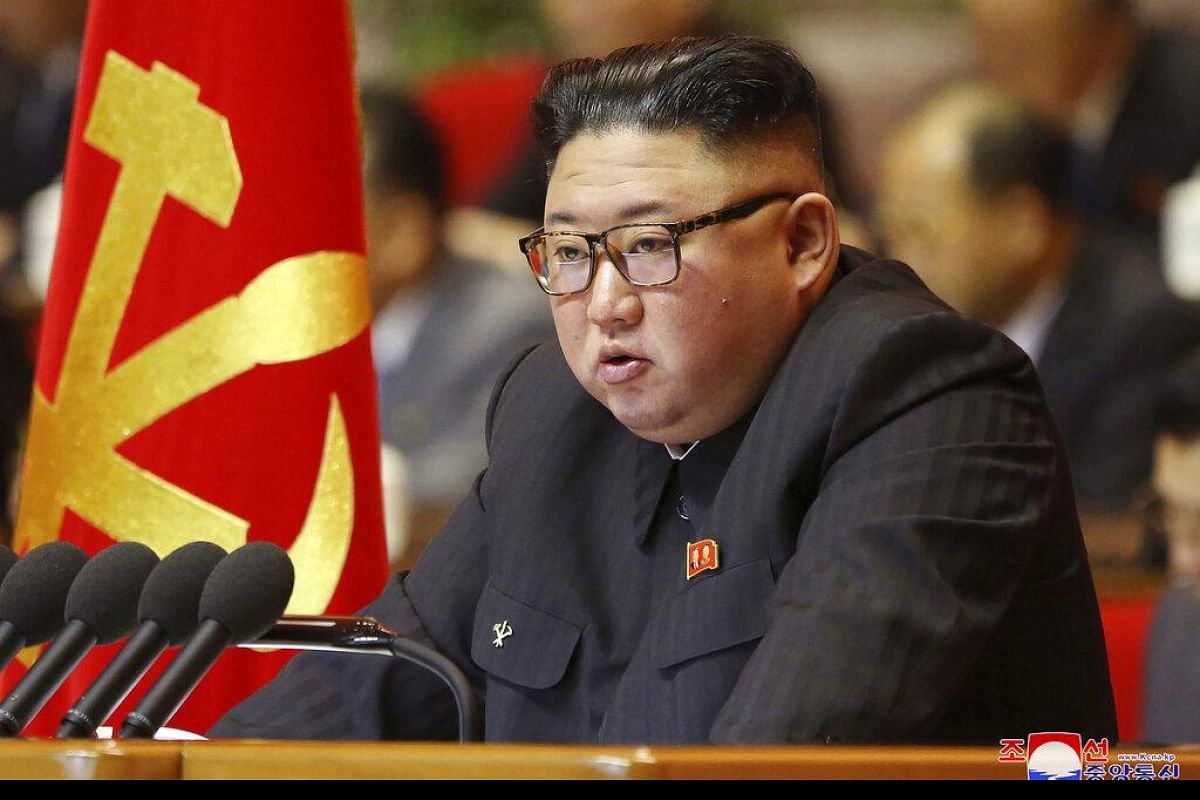Israel intercepts missile fired from Yemen toward Red Sea’s Eilat
The Israel Defense Forces (IDF) said in a statement on Saturday that it had intercepted a missile fired from Yemen toward southeastern Israel.
According to analysts, seven North Korean missile tests in the first four weeks of 2022 suggest the country’s leader, Kim Jong Un, is both striving to meet domestic goals and show an increasingly turbulent world that Pyongyang remains a player in the struggle for power and influence, reported CNN.

Kim Jong Un (AP file photo)
With seven missile tests in January in defiance of international law, North Korean leader Kim Jong Un wants the world to know he still matters.
According to analysts, seven North Korean missile tests in the first four weeks of 2022 suggest the country’s leader, Kim Jong Un, is both striving to meet domestic goals and show an increasingly turbulent world that Pyongyang remains a player in the struggle for power and influence, reported CNN.
Advertisement
“By threatening to destabilize Asia while global resources are stretched thin elsewhere, Pyongyang is demanding the world pay it to act like a ‘responsible nuclear power,'” said Leif-Eric Easley, Associate Professor of International Studies at Ewha Woman’s University in Seoul, South Korea.
Advertisement
Those seven missile tests are believed to be a hypersonic glide vehicle — potentially one of the most powerful weapons on the planet — to an intermediate-range ballistic missile (IRBM), Pyongyang’s longest-range missile tested since 2017 — to cruise missiles, arms that powers like the US have had in their inventory for decades.
The tests fall into Kim’s pledge to make North Korea a power that can stand up to not only its southern neighbour, but also to foes further afield, such as the United States.
The IRBM that was tested Sunday could have the range to hit the US island territory of Guam in the Pacific Ocean, reported CNN.
Kim has reason to be concerned about a possible government change in Seoul in March’s presidential election. Conservatives behind presidential candidate Yoon Suk Yeol have a chance to unseat the current ruling democrats, fronted by Lee Jae-Myung, who would succeed party colleague President Moon Jae-in if elected.
Analysts say a Yoon-led government could be expected to take a much harder line against the North compared to one led by Lee.
Yoon even planted the idea that South Korea could strike first against a perceived threat from the North before the South might suffer a catastrophic loss, reported CNN.
Kim certainly got the attention of Moon with Sunday’s IRBM test. The South Korean President said in a statement that the IRBM firing could be considered as a signal the Kim regime is preparing to scrap its moratorium on the intercontinental ballistic missile (ICBM) and nuclear testing.
That moratorium has largely kept North Korea out of the international spotlight, but longer-range missile tests could reverse that trend.
Meanwhile, Joe Biden’s administration has largely put North Korea on the back burner, with foreign policy issues like China, Taiwan and most recently Ukraine dominating attention along with the coronavirus pandemic.
Washington’s responses to North Korean launches in January are nowhere near its reaction to Pyongyang’s provocations in 2017, when Donald Trump was the US President, reported CNN.
On Sunday, a US official told reporters Washington was open to talks with Pyongyang, though the official said those would begin at a level lower than a direct meeting between Biden and Kim.
That has to be frustrating for the first North Korean leader to meet face-to-face with a sitting American President not once, but three times.
“For better and for worse, Biden is showing no fire and no fury,” Easley said.
Last year, Biden’s first in office, North Korea staged eight tests — none in the range of an ICBM. But Sunday’s IRBM tests indicates that capability is still in the North’s inventory, and analysts say testing one now could be a big blow to a Biden administration already rocked by perceived foreign policy missteps like the US pullout from Afghanistan and the threat of war in Europe posed by Russia massing troops on its borders with Ukraine.
Meanwhile, with the Winter Olympics starting in just days in the capital of North Korea’s main ally, China, the world may see Kim take a breather from testing and let his friends in Beijing bask in the international attention, reported CNN.
Advertisement